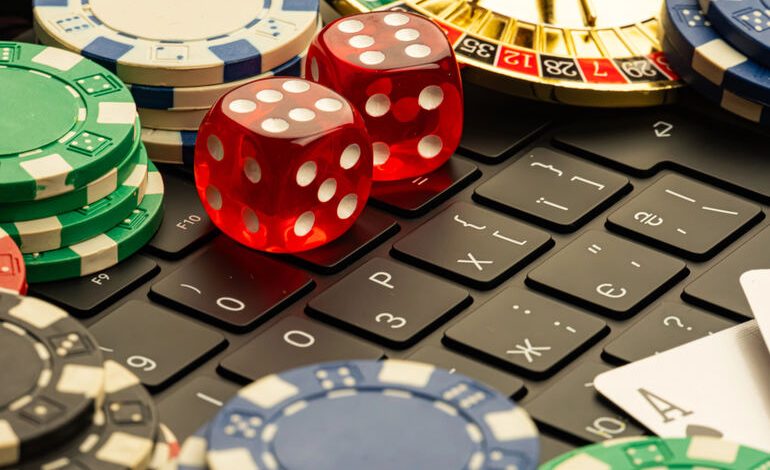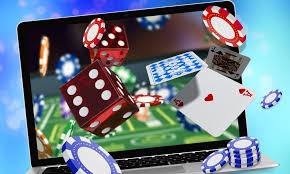
Loki, the Norse god of mischief and chaos, has captivated audiences for centuries. From ancient mythology to modern adaptations in films and literature, Loki remains a compelling figure that embodies complexity and contradiction. Fans of the character can even find ways to express their love for this trickster through various forms of entertainment, including the thrill of online games, as seen on sites like Loki https://loki-online-casino.com/.
Who is Loki?
In Norse mythology, Loki is a somewhat complex character. He is not solely a god but also a giant (Jötunn) by lineage, known for his cunning and ability to change form. Often recognized as a trickster, he disrupts the order established by the other gods in Asgard, leading to both amusing and catastrophic outcomes. He embodies qualities that are contradictory—both good and evil, helpful and harmful, honorable and deceitful.
The Mythological Background
Loki is the son of the giants Fárbauti and Laufey, making him a unique figure within the pantheon of Norse gods. He is often associated with the god Odin, who is seen as a father figure; however, their relationship is fraught with tension. Loki’s mischief often puts him at odds with the other gods, yet he also aids them on numerous occasions, showing his duality.
Loki’s Role in the Aesir and Vanir Conflict
One notable story involves the conflict between the Aesir and Vanir gods. After a truce was called, Loki was instrumental in sealing the bond between these two factions. However, his actions often led to various challenges for the Aesir. For example, the tale of Loki cutting off the hair of Sif, Thor’s wife, showcases his trickster nature. The consequences of his actions forced him to embark on a journey to retrieve new hair made of gold for Sif, highlighting how both his mischief and cleverness intertwine.
The Story of Ragnarok
Loki’s most significant narrative arc culminates in Ragnarok, the end of the world in Norse mythology. After a series of betrayals, Loki ultimately sides with the giants against the gods, leading to a climactic battle that results in the death of numerous key figures, including Odin and Thor. This transformation from a helpful ally to a formidable adversary illustrates Loki’s unpredictable nature, leaving readers captivated by the unpredictability of fate and loyalty.
The Symbolism of Loki

Loki symbolizes the chaos inherent in the universe. He challenges norms, incites revolution, and ultimately leads to growth and change, albeit through destruction. The character serves as a narrative device to explore the concepts of free will, fate, and duality. These themes resonate deeply within human experiences, making Loki relatable beyond his mythological context.
Loki in Modern Culture
In contemporary media, Loki’s legacy continues to flourish. His portrayal in the Marvel Cinematic Universe (MCU), where he is portrayed by Tom Hiddleston, has brought the trickster god to a new generation, infusing him with charm and wit. These adaptations often highlight Loki’s internal struggles while exploring themes of identity and redemption. His popularity has not only revitalized interest in Norse mythology but has also birthed a wealth of merchandise, fan theories, and artistic representations that celebrate his character.
The Significance of Loki in Storytelling
Storytellers often use Loki as a subplot device, seamlessly integrating his mischief into the broader narrative as a way of exploring human nature. His unpredictability challenges characters to confront their own beliefs, leading to development and growth. This has also been a recurring theme in literature, films, and television shows where the journey of self-discovery is both invigorating and tumultuous, emphasizing that chaos can often spark profound change.
Loki and the Trickster Archetype
Loki fits perfectly into the archetype of the trickster, which exists across cultures. Tricksters often embody traits like wit, cunning, and the inclination to bend societal norms. They serve to undermine authority while simultaneously revealing truths about existence. This universal appeal resonates with audiences, leading to an enduring fascination with characters like Loki.
Personal Reflections on Chaos and Order
At its core, Loki’s mythos encourages introspection about chaos and order within our own lives. It is through upheaval that individuals often discover their true selves. In a world increasingly focused on stability and conformity, Loki represents the importance of embracing uncertainty and resisting the urge to fit neatly into defined roles. By understanding and accepting chaos, personal growth can flourish.
Conclusion: The Enduring Legacy of Loki
As the embodiment of trickery and chaos, Loki continues to leave an indelible mark on cultural narratives. His complex personality, rich backstory, and multifaceted relationships inspire creators across various fields. Whether viewed as a villain, anti-hero, or a necessary catalyst for change, Loki’s legacy endures, provoked conversations surrounding morality, identity, and the balance between order and chaos. Through storytelling, both ancient and modern, we explore the essence of being human—a drama in which Loki will always play a vital role.
